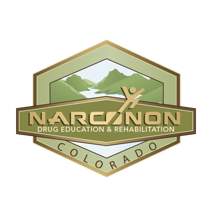How to Establish Boundaries with an Addict

When someone you love is addicted to drugs or alcohol it is very difficult not to get stuck on their emotional roller coaster along with them. Healthy boundaries are important in any relationship, but even more so when someone you care about has an addiction. Establishing boundaries with an addict not only protects you, it also helps to ensure that you are not enabling their destructive behavior.
Everyone is responsible for their own actions but we are all also responsible for the type of behavior we allow others to display around us. The less an addict is enabled, the more likely they will be to seek help. If someone is constantly getting bailed out from the problems that their addiction is creating they will not have any motivation to change their behavior. It is important to not take on the consequences of another person’s addiction as your own.
- So what are boundaries? Boundaries are rules and guidelines that we establish to protect our own well-being. They draw lines in the sand to ensure that we are not taken advantage of by others.
- How does someone define their own boundaries? Think about what you will allow in your life and what you won’t put up with. Figuring out the types of behavior from others that are negatively impacting you is a good place to start.
- How do I establish boundaries? Setting up boundaries may require some uncomfortable conversations but being upfront and honest is key. Let the person know that for the sake of your own mental health and emotional health, there are certain things you cannot continue to allow. Do this in a way that is as polite and concise as possible.
- How do I enforce my boundaries? After a boundary has been established it is important that it is maintained, otherwise, it will become meaningless. For example, if you establish a rule that you don’t want a loved one to get high around you, but later allow them to do so, then what you say will not be taken seriously.
Below are some common boundaries that have been found to be helpful when dealing with a friend or family member that is addicted to drugs or alcohol.
1. Let them know they cannot drink or use around you.
If you do not want your loved one drinking or using around you or your children then you need to communicate this to them. Let them know that you want to spend time with them but that if they are under the influence at your home they will need to leave.
2. Do not allow drugs and drug paraphernalia in your home.
Let your loved one know that you will not tolerate drugs or paraphernalia in your home, on your property or in your car. Establish ground rules with them and let them know what will happen if those rules are broken.
3. Do not lend or give them money.
Do not give money to an addict, even if they say it is for food or to pay a bill. The only thing that giving an addict money does is enable them to continue using.
4. If they end up in jail for their drug use do not bail them out.
Oftentimes a person needs to face the consequences of their actions before they are willing to change. This includes taking responsibility for legal problems that arise from substance abuse. The only time bailing an addict out of jail would not be a form of enablement is when they will be attending addiction treatment immediately after getting out. In this sort of situation, the best thing to do would be to set up everything with a treatment center before the person is released and then have them go directly to that facility after getting out.
5. Do not pay off their debts.
If an addict owes their dealer or friends money and you pay it off for them they will never learn anything except that they can count on you to get them out of trouble. This is not a healthy way to deal with problems and ends up hurting both the enabled and the enabler.
6. Do not lie or cover for them.
Not lying for someone makes it necessary for them to own up to their own mistakes. By making excuses for another person or covering for them when they have done something wrong, you are depriving them of a valuable life lesson.
7. Do not put up with abusive behavior.
If a person is constantly insulting you or yelling at you, let them know you will not tolerate that behavior and will remove yourself from the situation if it continues. If someone is being physically abusive or violent then get away as quickly as possible and seek help. Do not sacrifice your own safety or self-worth in the interest of preserving the “peace”.
8. Let them know you will help them get better but you will not enable them to stay the same.
Let your loved one know you will help them research programs, tour treatment facilities or, if you are able to, help them pay for treatment. On the other hand, let them know that you will not enable self-destructive behavior by giving them rides to pick up drugs, giving them money or doing anything that will make it easier for them to get high.
9. Do not make idle threats.
If you give someone an ultimatum you need to be willing and prepared to follow through with it. Idle threats do nothing but deteriorate your own accountability.
10. Detach when necessary.
When all else fails, sometimes the safest thing to do is detach from the person until they are willing to change and get better. This is a decision that shouldn’t be taken lightly but if someone is continually disrespecting your boundaries or putting you in danger you need to protect yourself.
While it’s important to establish boundaries, it’s even more important to realize that no amount of boundaries that you set will solve the person’s addiction and make the problem go away. Once you have your boundaries in place, make sure you follow through and do whatever you can to get the addicted real help.


